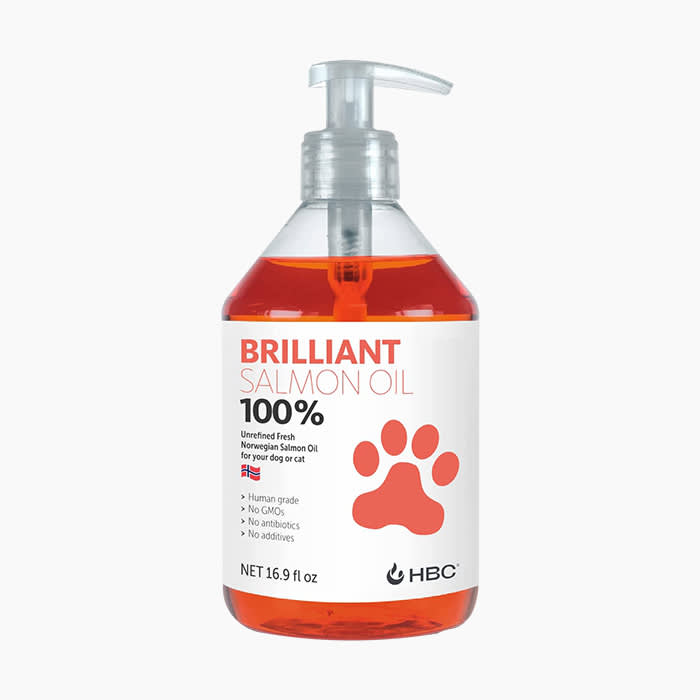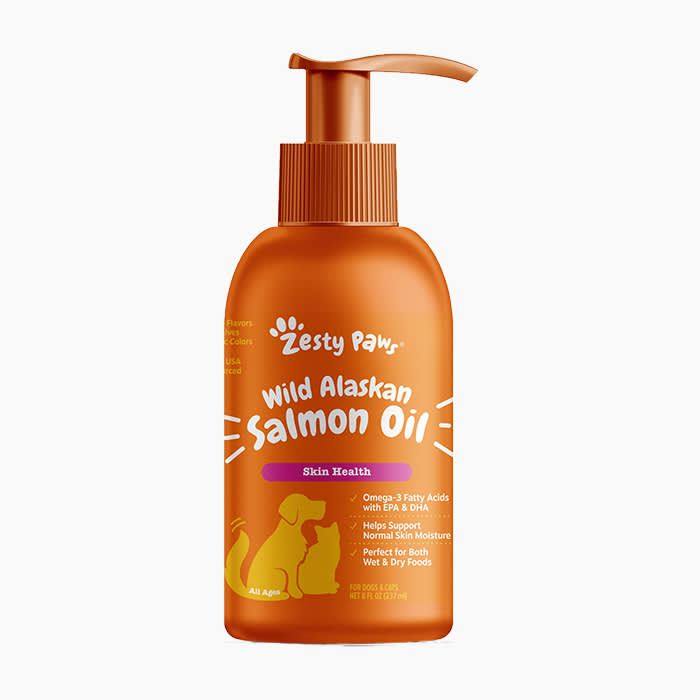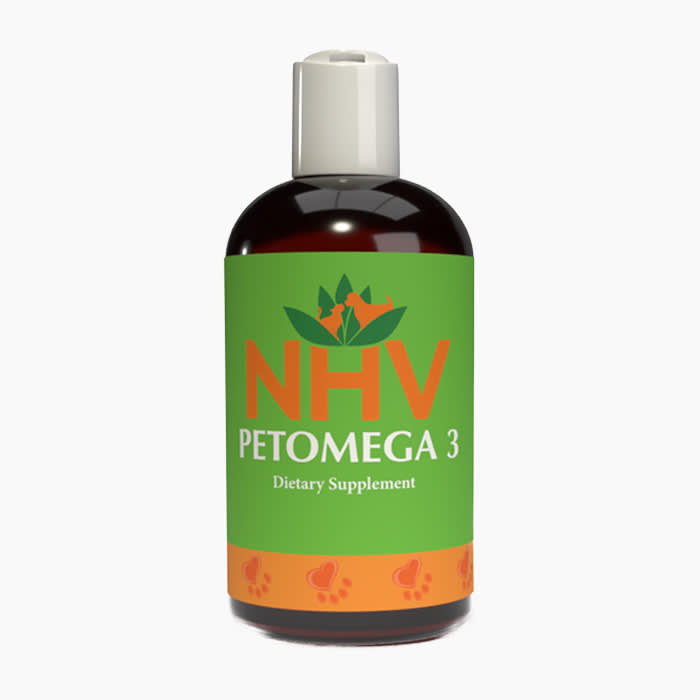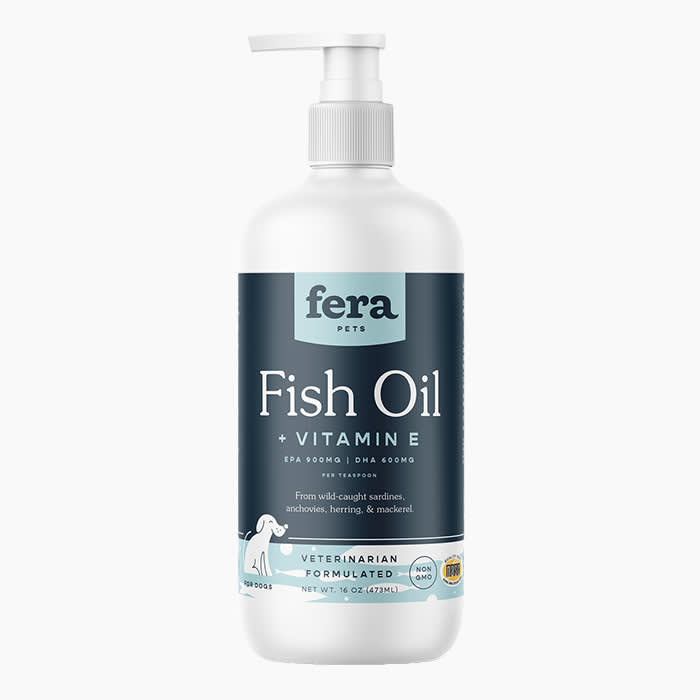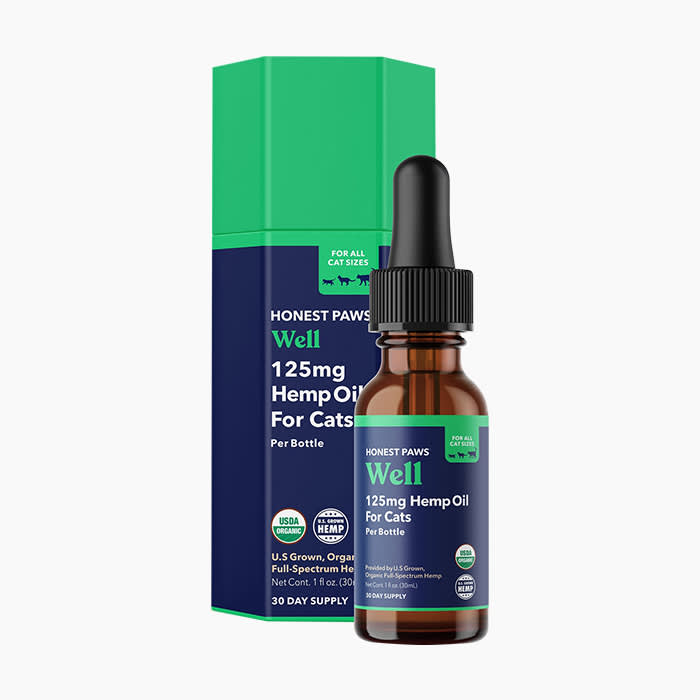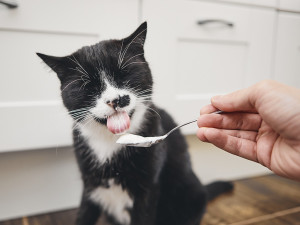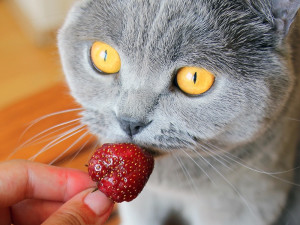The 5 Best Fish Oils for Cats
The next best thing to branzino, omega-3s support your cat’s skin, brain, joint, and heart health.

share article
While taking a daily shot of olive oil may have been debunked as a necessary supplement for humans, research shows that adding fats to your cat’s daily meals is more essential than ever. In fact, fats provide twice the amount of energy of protein and carbohydrates for cats, making them an important source of macronutrients. That’s why packing your cat’s diet with omega-3 fatty acids just might be the best way to keep their skin healthy, prevent heart disease, and tame inflammation. Below, everything you need to know about omega-3s and how to make sure your cat is getting enough of them.
What Are Fatty Acids Anyway?
Fatty acids are a specific type of polyunsaturated fat and can be classified into omega 3s or omega 6s. Essential fatty acids (EFAs) are those that the body cannot make for itself, which are supplied through our daily diets. The essential fatty acids for cats are omega-3 and omega-6 acids, which are important to your cat’s nutrition as they aid in the absorption of vitamins by transporting fat-soluble vitamins (A, D, K, and E) into the body from the intestine. They also play a role in cell structure and function, including vision and learning abilities. Plus, they make food, manufactured or homemade, tastier and more palatable.
The Benefits Of Omega-3 Fatty Acids For Cats
Omega-3 fatty acids are especially crucial for cats because they have a positive impact on so many aspects of their health. According to veterinarian Dr. Annette Louviere, “Omega-3s can act as anti-inflammatory agents in a large variety of clinical cases,” which helps manage chronic inflammatory disorders like colitis, obesityopens in a new tab, inflammatory bowel disease, joint pain due to arthritisopens in a new tab, and allergic skin problemsopens in a new tab.
They also support normal neural and nervous system development, cardiovascular and immune systems, and healthy reproduction; help with stress management and cognitive function, especially in senior cats; and support skin and coat health and relieve dry, itchy skin. Fish oils can decrease triglycerides and cholesterol in the blood, and omega 3s fatty acids for cats have even been shown to slow the development and metastasis of certain cancers.opens in a new tab
How to Max Your Cat’s Intake of Omega 3s
To make sure your cat is getting enough omega-3 fatty acids for optimal health, go beyond the kibble (go ahead, give them some salmon from your dinner plate.) Top their regular food with fish like mackerel, sardines, salmon, or tuna, or do some digging for an essential fatty acid supplement that suits your cat’s needs.
“While available over the counter and generally considered very safe, pet parents should still use dietary supplements with guidance by their veterinarians,” Dr. Louviere cautions. “This is because there are some medications that can have interactions when given with fish oil.” Once you receive your veterinarian’s stamp of approval, further research each oil’s purity, freshness, potency, and sustainability to ensure you’re selecting the best source of omega 3s for your cat.
Purity:
The fish oil must meet international standards for heavy metals, PCBs, dioxins, and other contaminants. See the manufacturer’s Certificate of Analysis (CoA) for third-party verification.
Freshness:
Check that they’re a guaranteed-fresh source packaged in an oxygen-free form, such as soft gel capsules that prohibit air from contacting the oil.
Potency:
The fish oil must contain DHA and EPA. DHA provides the most benefit to cats, so it should exceed the levels of EPA.
Sustainability:
Many fish oils are made from fish that are endangered. Choose products made from fish certified by organizations such as the Global Organization for EPA and DHA Omega-3s (GOED).
Best Fish Oils
Btw, our editors (and their pets) picked out these products. They’re always in stock at the time we publish, but there’s a chance they’ll sell out. If you do buy through our links, we may earn a commission. (We’ve got a lot of toys to buy over here, you know?)
Best Overall
Best Budget
Best Splurge
Best Sustainable Option
Best Calming

Avery Felman
Avery is a writer and producer. She has written for numerous publications, including Refinery29, BuzzFeed, and V Magazine. When she’s not at her computer, you can find her reading, practicing her Greek on Duolingo, and delving into the Sex and the City discourse. She lives in Brooklyn, New York with her husband and their cat, Chicken, who rules with an iron fist.
Related articles
![Cheerful Brunette Having Fun With Her Dog Outside]() opens in a new tab
opens in a new tabBig Fish: The Best Omega-3 Supplements for Dogs (And Why They Need Them)
Fatty acids rev up your dog’s energy, keep their coat shiny, help with inflammation from allergies and arthritis, and so much more.
![A cat licking yogurt from a spoon.]() opens in a new tab
opens in a new tab6 Best Cat Probiotics
Is your cat’s microbiome out of whack? It may be time to add probiotics to their diet.
![Hand holding food bowl peeks into frame as a cat looks up expectantly]() opens in a new tab
opens in a new tabThe Ultimate Puzzle: Picking the Right Cat Food
Four veterinary nutritionists pick apart the claims so that you can choose the right food for your kitty.
![White kitten with tongue out next to slices of watermelon]() opens in a new tab
opens in a new tabCan My Cat Safely Enjoy Watermelon? A Guide to Feline Dietary Choices
Yes, the summertime staple is on the list of “safe” foods for cats.
![Grey cat eats a strawberry]() opens in a new tab
opens in a new tabCan Cats Eat Strawberries?
Soon, they’ll be demanding you make this strawberry ice cream recipe on repeat.
![woman feeding cat a treat]() opens in a new tab
opens in a new tabHow Many Treats Is Too Many For Your Cat?
Despite what your cat thinks, jerky treats all day, every day, is not the answer.


